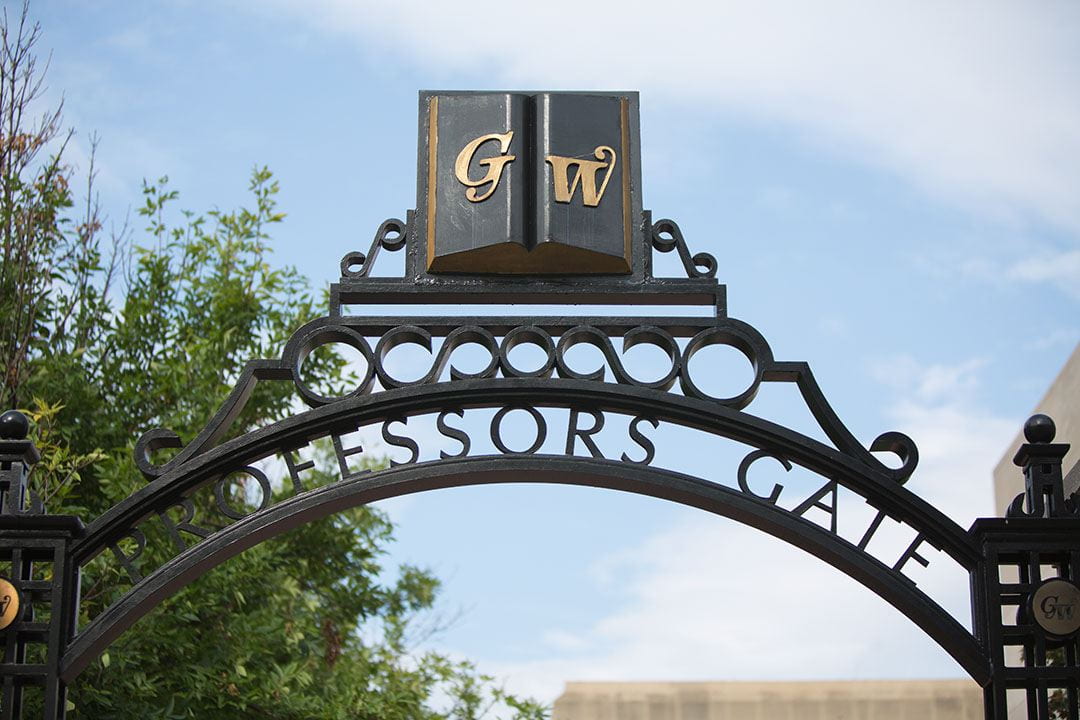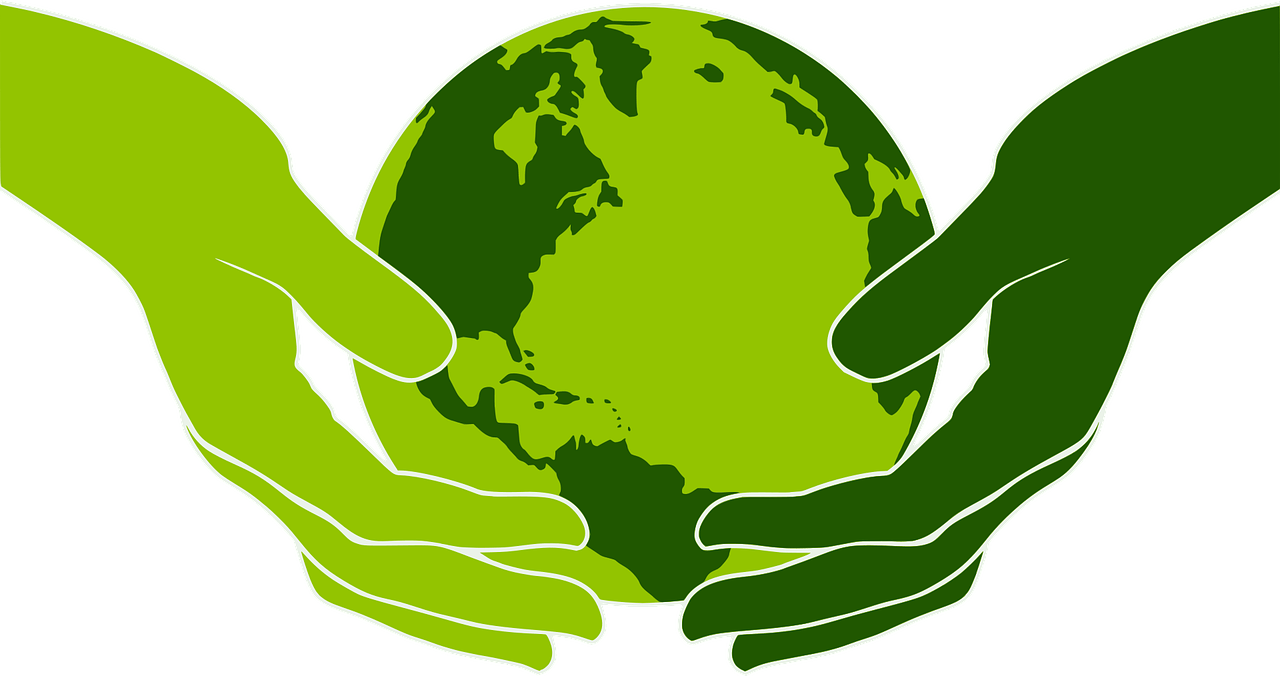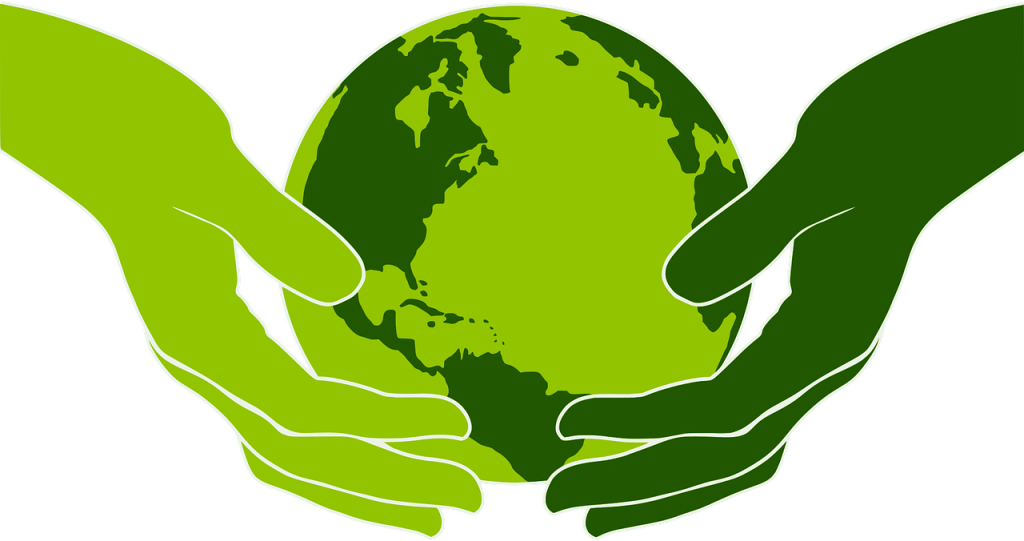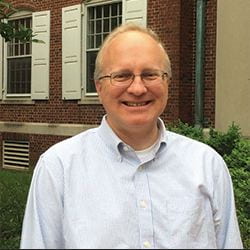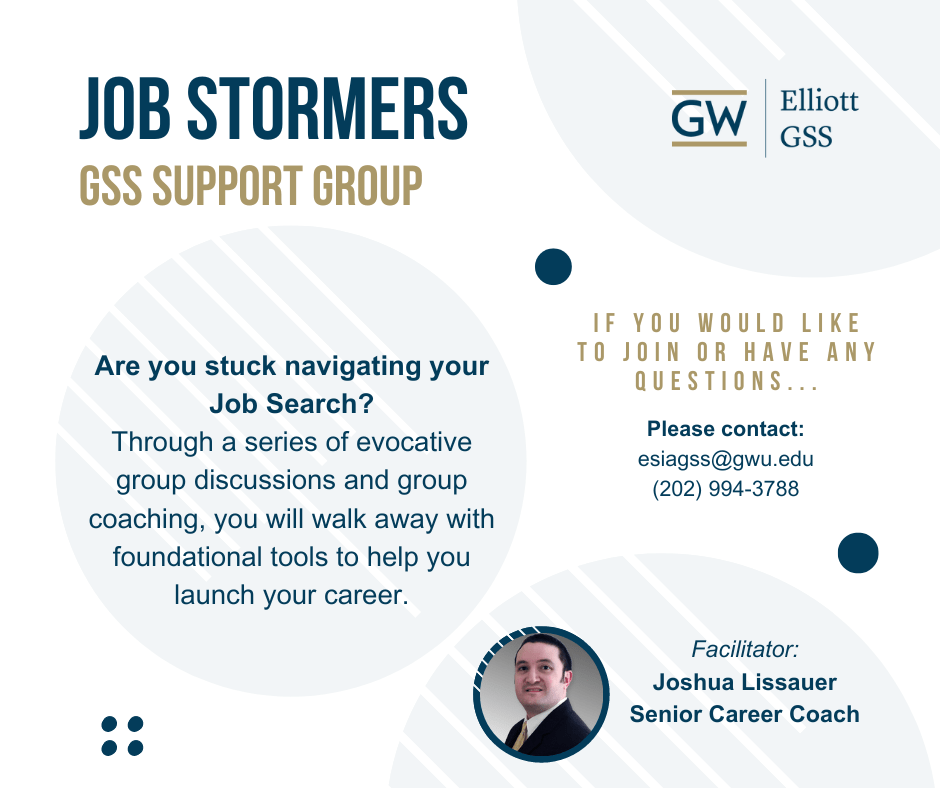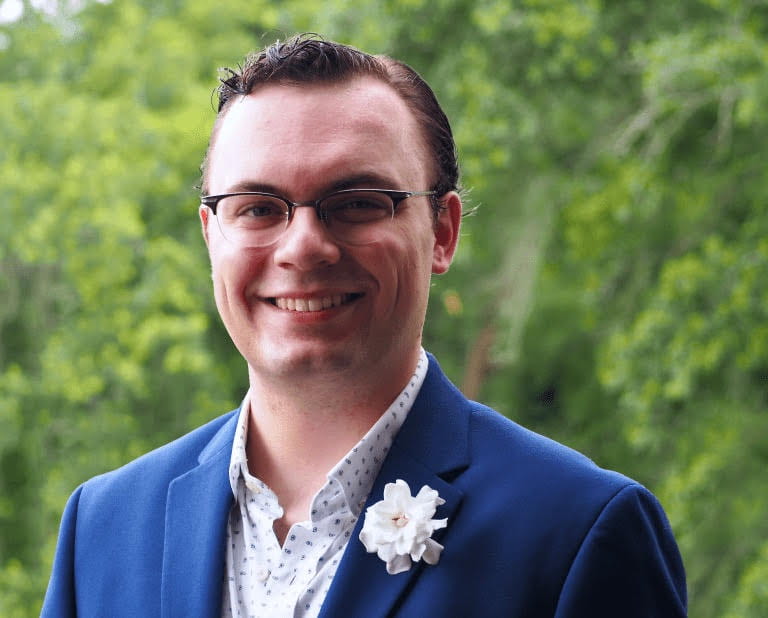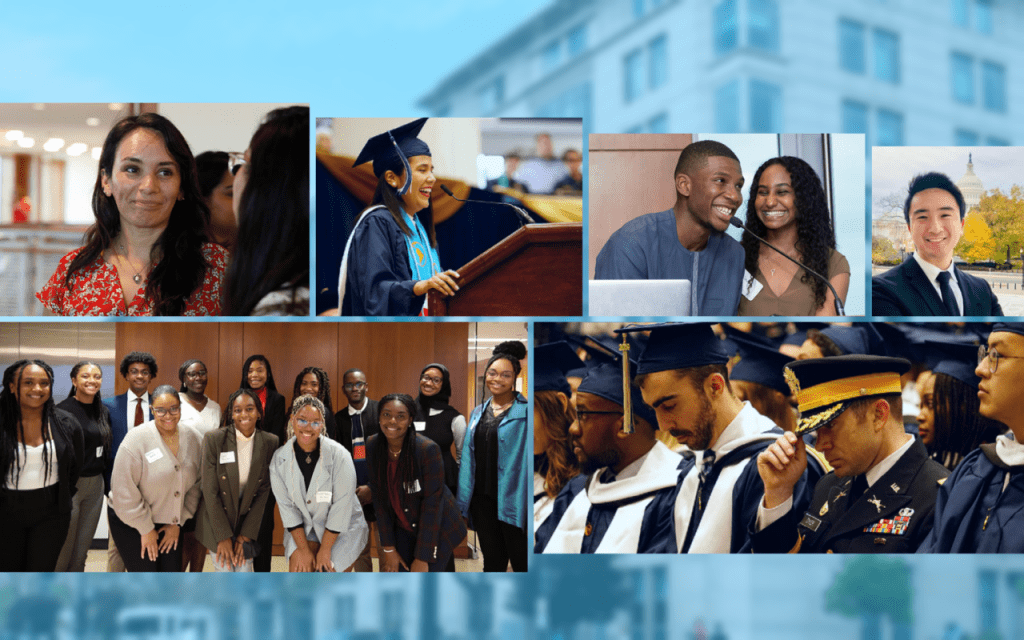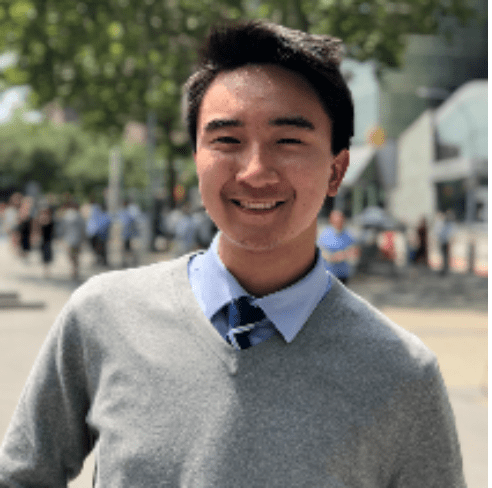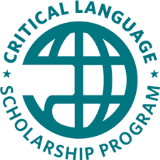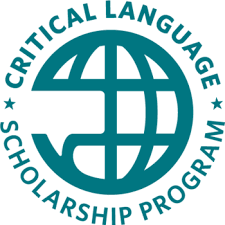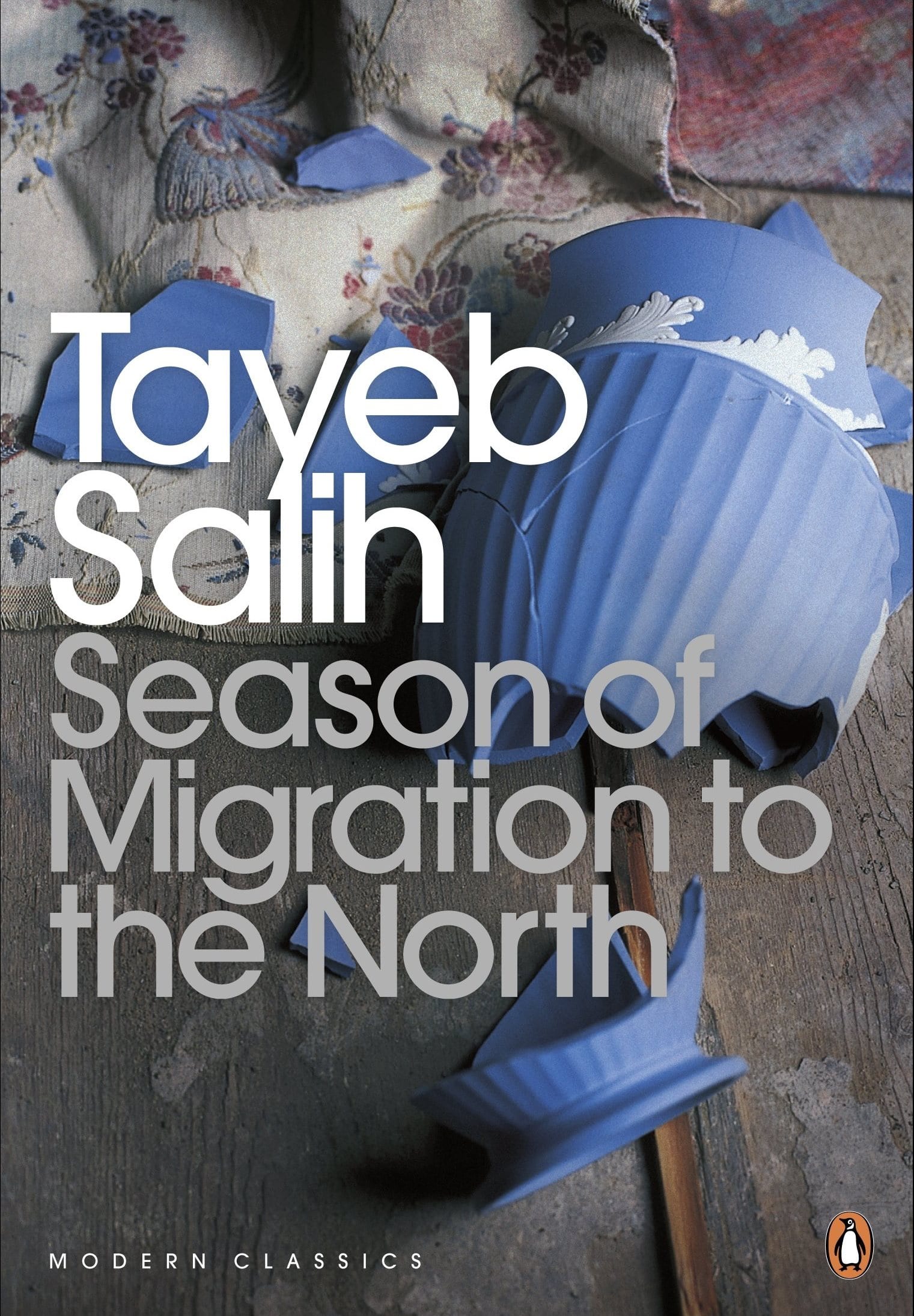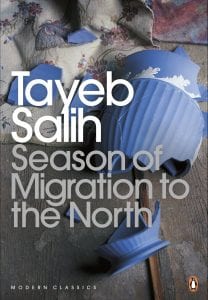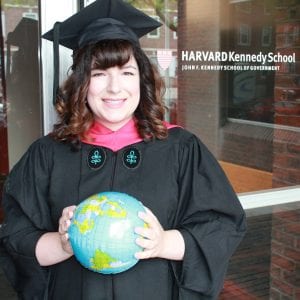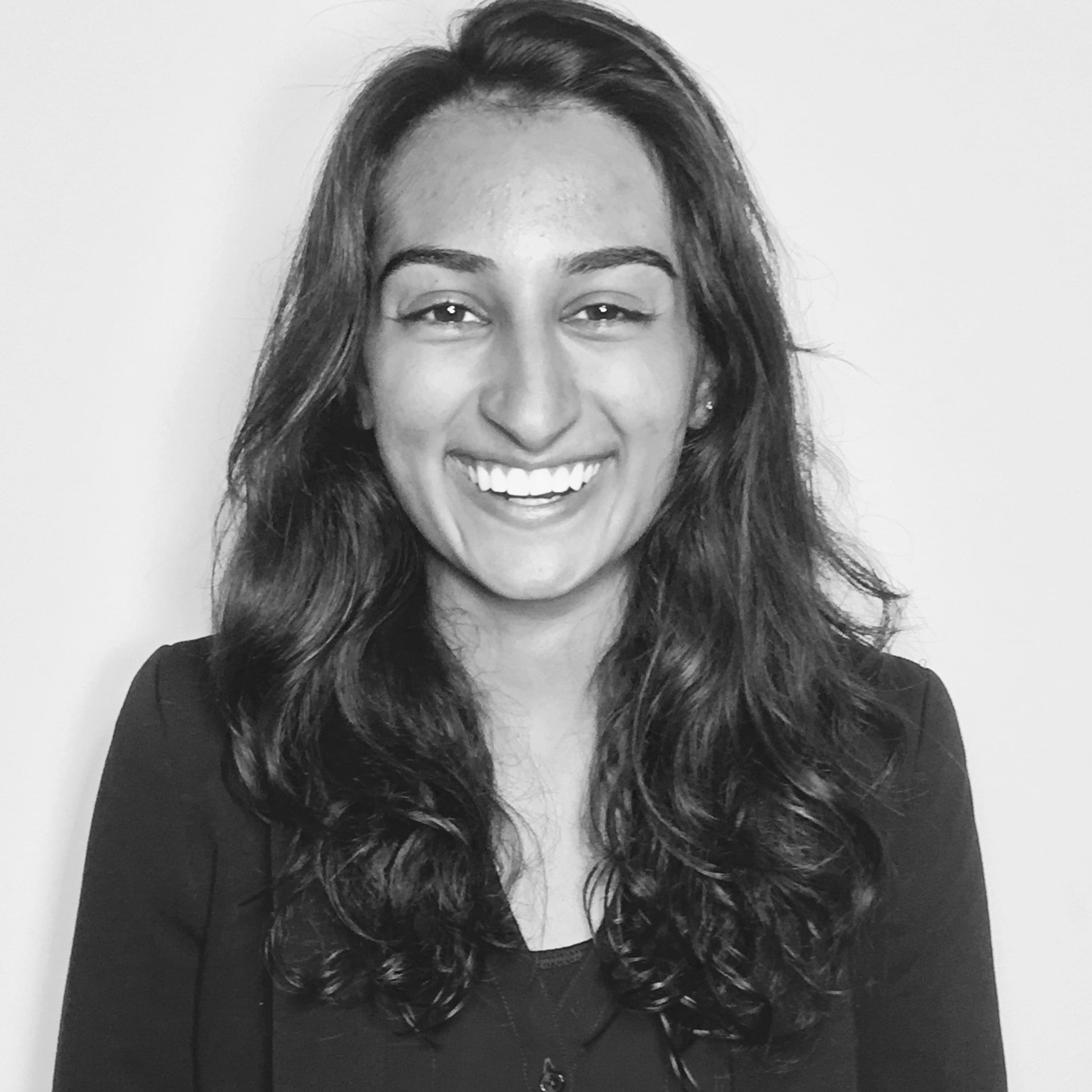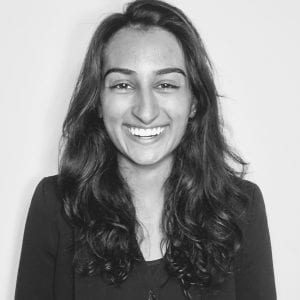Elliott School’s Susan Ariel Aaronson, CCAS’s Alexa Alice Joubin and SMPA’s David Karpf comprise the university’s inaugural PIT Scholars cohort.
Authored by: Ruth Steinhardt
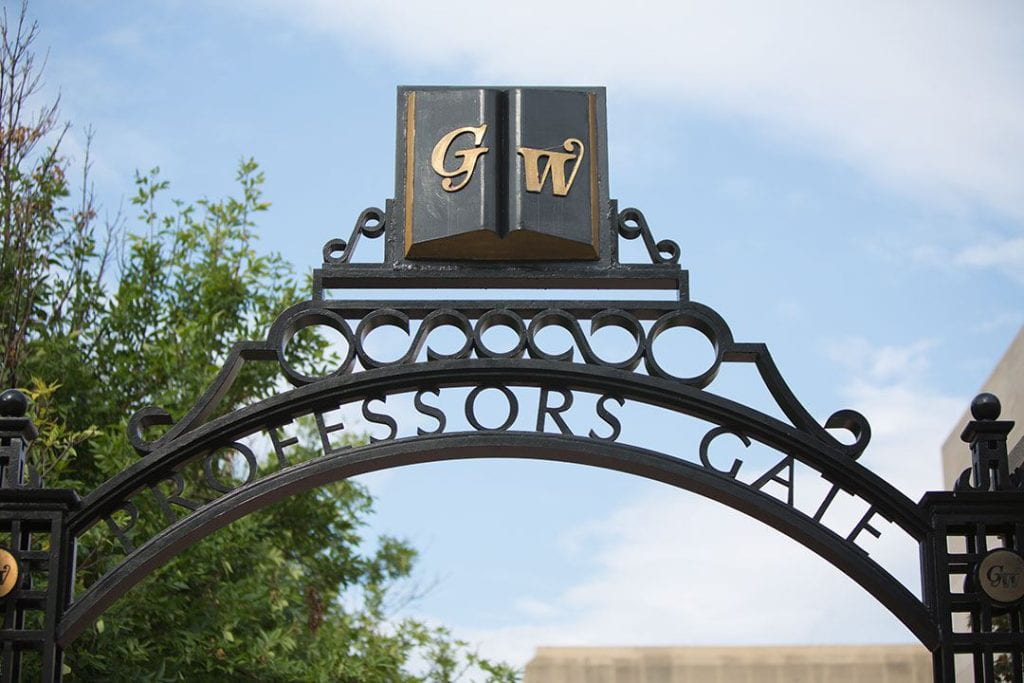
The George Washington University introduced its Public Interest Technology (PIT) Scholars program this week, supported by the Office of the Vice Provost for Research, demonstrating an ongoing commitment to the study and application of technology that advances the public good by recognizing and empowering scholars contributing to that work. Three GW faculty members were named to the inaugural PIT Scholars cohort:
- Susan Ariel Aaronson, research professor of international affairs in the Elliott School of International Affairs, director of the Digital Trade and Data Governance Hub and co-principal investigator of the NIST-NSF Trustworthy AI Institute for Law and Society (TRAILS);
- Alexa Alice Joubin, professor of English, theatre, East Asian languages and cultures and women’s, gender and sexuality studies in the Columbian College of Arts and Sciences and of international affairs in the Elliott School, affiliate of Trustworthy AI Institute for Law and Society, and founding co-director of the Digital Humanities Institute; and
- David Karpf, associate professor of media and public affairs in the School of Media and Public Affairs.
As PIT Scholars, Aaronson, Joubin and Karpf will facilitate cross-disciplinary research and teaching, seek new collaborations at GW and beyond and deliver a university-wide lecture. Their work also will raise awareness of the Public Interest Technology University Network (PIT-UN), of which GW has been a member since 2020.
“GW faculty can play an important role in facilitating technology in the public interest through research, education and service,” Vice Provost for Research Pamela Norris said. “In fact, there are many opportunities for GW to combine our historical strengths in fields like law, policy and international affairs with technology innovation to grow a new generation of civic-minded technologists and digitally fluent policymakers.”
At the PIT Scholars launch event in Science and Engineering Hall Wednesday afternoon, faculty from a range of disciplines gathered to discuss the definition of PIT, the opportunities and challenges its development presents and how to stimulate the collaboration necessary to promote it. Each of the three scholars gave a brief presentation on their ongoing PIT-related projects, as did Zoe Szajnfarber, director of strategic initiatives for the School of Engineering and Applied Science and professor of engineering management and systems engineering, and of space policy. Jack Goodman, a senior associate at government relations firm Lewis-Burke Associates, also presented on the range of federal funding available for PIT-related initiatives.
PIT is almost inherently interdisciplinary, speakers suggested, depending as it does on a variety of perspectives regarding both what the “public interest” or “civic good” actually is and also how a given product or initiative could affect that interest. Technology developed from a single disciplinary viewpoint, even with the best of intentions, may have unintended but major consequences in another arena.
Aaronson encouraged attendees to be “Johnny Appleseeds,” spreading the word about PIT and its potential in their own departments, and reminded the audience that TRAILS—the stated mission of which is to ensure the participation of diverse stakeholders in AI development so that future AI systems enhance human capacity, respect human dignity and protect human rights—opens its 2024 application season in April. “We are really eager to see proposals from people in departments that are traditionally underrepresented,” she said.
Karpf, currently on sabbatical, is working on a book based on his reading of the entire back catalogue of “Wired” magazine. Digital boosterism can have a distorting effect, he said, leading public enthusiasm—and research, in its wake—from one big idea to the next without evaluating the impact of previous zeitgeists. “I want to capture some sense of the stories that we tell ourselves about how our technologies change the world, and what we can learn from looking at contemporaneous predictions,” he said.
And, Karpf joked, “as somebody who spent the past six years sitting around reading old tech magazines and designing a class around old tech magazines,” he also appreciates the way the PIT Scholars program gives him a “deeply appealing” opportunity to “help build a community where that [work] is of some strange use.”
Joubin, who is working on multiple projects examining the interplay of technology, language, culture and the public interest, spoke passionately about the importance of involving humanities and arts scholars in conversations about tech, and vice versa. The written word, she pointed out, is itself a form of technology that no current scholarship has bettered. Where technology and the humanities intersect—which, increasingly, is everywhere—these intersections “force us to ask and rethink longstanding questions about moral agency, trustworthiness, the mind and body and the relationship between humans and machines.”
Such questions may seem esoteric, and projects on the borders of PIT may currently seem fringe. But, as Joubin pointed out, knowledge can only advance at the borders of what’s currently known. As PIT Scholars, she and her colleagues can “showcase the value of being atypical.”
“Atypical work is where breakthroughs are possible,” she said. “There is value in being a little bit of a weirdo.”

